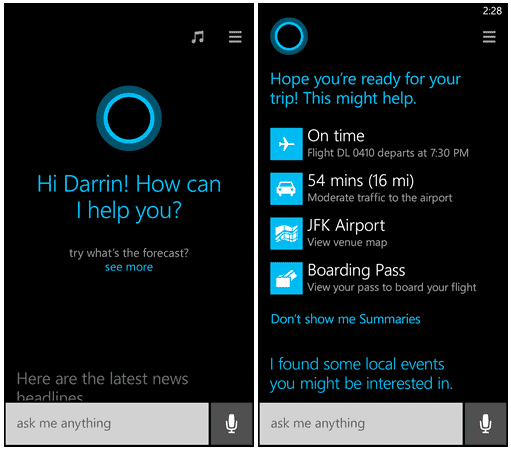Microsoft announced plans yesterday to change the digital assistant Cortana into a tool that is focused on "productivity" and more closely aligned with the company's vision for Microsoft 365.
Cortana, which Microsoft introduced in Windows 10 when it launched the operating system back in 2015, was designed as a direct competitor to Amazon's Alexa and Google's Assistant.
Microsoft integrated Cortana deeply in the operating system in an effort to boost the reach and exposure of Cortana; not the first time Microsoft tried the strategy as it has a track record of making features exclusive to newer versions of Windows such as DirectX 10 exclusivity in Windows Vista or making the old Microsoft Edge browser Windows 10 exclusive.

Microsoft bundled Search and Cortana together in Windows 10 which increased the exposure of the feature significantly. It appears that Microsoft's strategy has not pushed Cortana as much as Microsoft hoped it would. The company split Cortana and Search in Windows 10 version 1903.
Microsoft plans to change Cortana into a productivity assistant in Microsoft 365 in future versions of Windows 10. Cortana is changed from a digital assistant that competes with Alexa and Google Assistant to a tool that is more closely linked to Microsoft's own services and tools.
Microsoft notes:
The upcoming update to Windows 10 will include access to a new Cortana experience with an emphasis on productivity, helping you quickly find the information you want across Microsoft 365. The new Cortana experience in Windows 10 features a chat-based UI that gives you the ability to interact with Cortana using your voice or the keyboard.
Most of the new features of Cortana appear to be limited to US-English versions of Windows 10. Cortana will help users in better managing tasks and schedules, and to better focus on "what matters with meeting insights".
Cortana continues to provided answers from Bing, set alarms and timers, open applications, adjust settings, and for jokes.
Some features that are currently supported by Cortana will go away, however. Microsoft mentions features such as controlling music using Cortana, connected home, and third-party skills in particular. Whether other features will go away as well remains to be seen.
Closing Words
Is the change a last attempt at establishing Cortana as a new service? It seems clear that Cortana did not meet Microsoft's expectations; this left Microsoft with options to drop Cortana entirely or try to reinvent it to give it another chance of success.
Now You: What is your take on the change? Will Cortana be there in two years?
Thank you for being a Ghacks reader. The post Microsoft changes its Cortana strategy, drops features appeared first on gHacks Technology News.
Post a Comment